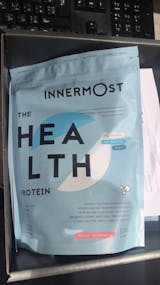The new year is here, and with it comes the inevitable question: “What’s the best diet to follow this year?”
It’s an exciting thought, isn’t it? A fresh start. A chance to get fit, shed some weight, and hit reset on your health. And while the latest trends and diets promise to be “the one,” let’s take a moment to slow down and look at what really works.
The Hard Truth
Most diets fail not because they don’t work, but because they don’t fit into real life.
Think about it. You’re pumped, you’re excited, and you’re unstoppable — for about two weeks. Then life happens. Motivation fades (statistically, most resolutions crumble by mid-January), the restrictive nature of your new plan starts to feel like a burden, and it all falls apart. Sound familiar?
The issue isn’t necessarily the diet itself — it’s that most diets aren’t realistic. You don’t need to overhaul your entire lifestyle or follow extreme rules to get healthier. In fact, sometimes the simplest, most sustainable habits will give you the biggest results.
But let’s not completely dismiss diets. Different approaches work for different people. So, let’s take a closer look at some of the most popular diets right now, their pros and cons, and whether they might work for you.
Keto (Low Carb, High Fat)
Pros: Proven to help with rapid weight loss and can regulate blood sugar levels. For those with insulin sensitivity or certain health conditions, it can be transformative.
Cons: Extremely restrictive. Eliminates most carbs, which can be a nightmare if you love bread, rice, or pasta. Social situations? Awkward. Meal planning? Time-consuming.
Real Talk: If you’re someone who can commit to a high-fat, low-carb diet, it’s effective. But if your idea of happiness is pizza night, Keto might feel like a punishment. Proceed with caution.
Paleo (Eat Like a Caveman)
Pros: Encourages whole, unprocessed foods like lean proteins, veggies, and healthy fats. It’s a good way to clean up your eating habits.
Cons: Cuts out entire food groups like dairy, grains, and legumes. Goodbye peanut butter sandwiches.
Real Talk: Paleo is great if you enjoy simple meals and want to avoid processed foods. But for most people, cutting out grains and dairy forever is a tall order.
Intermittent Fasting (Timing Over Calories)
Pros: Simplifies eating patterns and can help with weight loss without needing to obsess over calorie counting.
Cons: Not ideal for those who experience energy crashes or get “hangry.” Skipping meals isn’t for everyone.
Real Talk: If you thrive with structure and enjoy skipping breakfast, intermittent fasting can work. But if skipping meals leaves you cranky or fatigued, it’s probably not the best fit.
Mediterranean Diet (The Gold Standard)
Pros: Loads of research supports its benefits for heart health, weight maintenance, and longevity. A balanced mix of carbs, fats, and proteins makes it more sustainable long-term.
Cons: It’s less trendy, which means it doesn’t always grab the spotlight. Plus, it might require some adjustments if your current diet is heavy on processed foods.
Real Talk: This is less of a “diet” and more of a lifestyle change. If you’re looking for something sustainable and flexible, the Mediterranean diet is a great option.
So, What’s the Answer?
Forget about finding the perfect diet. The truth is the best diet is the one that works for you.
Here’s the formula that never fails:
- Eat nutritious food in balanced portions.
- Move your body regularly (whatever movement you enjoy!).
- Prioritise sleep — the underrated superhero of health.
- Sustainability is key. A diet should fit into your life, not the other way around. If it feels like torture or disrupts every meal with friends or family, it’s not going to last.
It’s also worth considering why you’re dieting. If you’re looking for weight loss, remember that consistency beats intensity. Healthy habits — like eating balanced meals and getting regular exercise — will take you farther than any extreme diet ever could.
A Word on Motivation
Here’s the catch: motivation is temporary. It’s the honeymoon phase of any resolution, but it doesn’t last. What does last is routine. Building habits that work for you — not against you — is the real secret to success.
No single diet is the holy grail. The truth is that most diets will work if you stick to them. The challenge is finding something that fits into your life seamlessly. That’s why it’s better to focus on balance and habits rather than perfection.
My Diet Advice for 2025
Diets can be useful tools, but they’re not magic. Start small. Incorporate more whole foods and keep your portions in check. Move your body in a way that feels good — not as punishment, but as celebration. And don’t underestimate the power of great sleep.
There’s no shame in trying a trendy diet if it motivates you to kickstart your health journey. Just remember, a diet is a tool, not a magic solution. If it doesn’t fit your lifestyle, it’s not you failing — it’s the diet and don’t beat yourself up about it. Focus on building habits you can stick with and remember that health isn’t a sprint, it’s a marathon.























